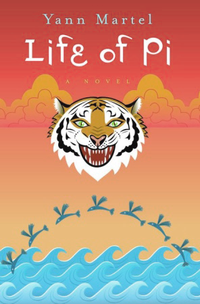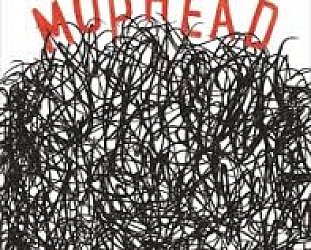Graham Reid | | 2 min read

This ingenious, fable-like and gently philosophical novel by Spanish-born, Montreal-based author Martel has not only been salivated over by critics but also longlisted for the Booker. Don't let that put you off.
The witty, often deliberately misleading narrative engages from the start, makes probing digressions into matters of faith and commonly held belief, and the core of the story involves an Indian boy, Pi - the improbably named Piscine Molitor Patel - adrift on a lifeboat with a menagerie of animals, including a Bengal tiger called Richard Parker (after a clerical error in which it took the name of its captor).
Much of the novel is the story of survival of the narrator who is the son of a zookeeper in Pondicherry.
Before his peculiar isolation on the liferaft the young Pi questions the nature of existence and adopts multiple religious affiliations - Christian, Hindu and Muslim - simultaneously.
Here Martel offers witty and sometimes insightful comments with Pi as his mouthpiece: "It is not atheists who get stuck in my craw, but agnostics. Doubt is useful for a while. We must all pass through the Garden of Gethsemane. If Christ played with doubt, so must we ... But we must move on. To choose doubt as a philosophy of life is akin to choosing immobility as a means of transport."
And later: "Christianity is religion in a rush. Look at the world created in seven days. Even on a symbolic level, that's creation in a frenzy. To one born in a religion [Hinduism] where the battle for a single soul can be a relay race run over many centuries, with innumerable generations passing along the baton, the quick resolution of Christianity has a dizzying effect."
But Pi/Martel also question more mundane precepts. It is almost a given that zoos are anathema to right-thinking people but his witty, pointed and eloquent defence of them - how animals in the wild are far from free but live in constant terror - makes for amusing and politically incorrect reading.
It also has a point, as we see when Pi is trapped on the lifeboat after the ship carrying his family to a new life in Canada sinks. All his understandings of animal behaviour are required to survive - and interpret the events for the reader who has observer status on this bizarre circumstance.
There is a great tradition of isolation literature (from Robinson Crusoe to Michel Tournier's imaginative revision in Friday, Or The Other Island is quite a leap) but Life of Pi offers a unique scenario. There are similar multiple isolations here, emotional and intellectual as much as physical, but as with other such books in the tradition, it is what the protagonist brings and reflects upon which is engrossing. And Pi's emotional fragility placed alongside an angry tiger in a small boat makes for a claustrophobic story under a vast and empty sky.
The story deftly plays on such juxtapositions - philosophical man versus brute nature and so on - and this makes for a curious little book. It has the compression of poetry in places, the ring of homespun philosophy in others and, especially in its closing chapters, an enticing air of mystery and welcome lack of closure.
It is a book that many critics and writers have found deeper than the narrative and therefore one to pull out the superlatives for. You are hardly going to argue with Margaret Atwood, reviewers in The Times and Literary Review, and those Booker judges.
But it is also highly readable and a pleasingly troublesome book - especially in the hallucinatory ending - that provokes and irritates as often as it brings a smile or furrow of the brow.





post a comment